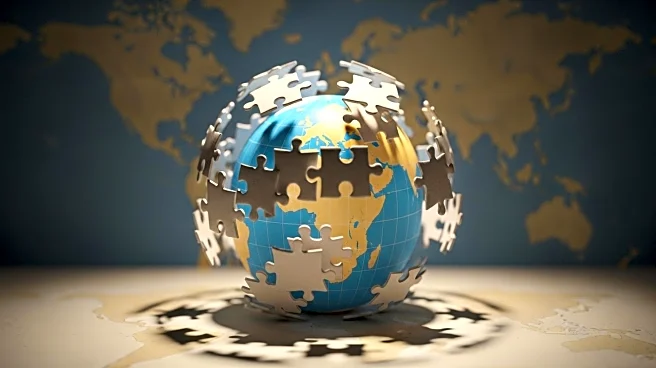What's Happening?
The shutdown of the US Agency for International Development (USAID) under the Trump administration has significantly impacted NGOs in the Global South, including Manushya, a Thai-based organization focused on human rights. Manushya faced a funding crisis when a promised $525,000 grant did not materialize, representing 75% of its funding. This led to life-threatening situations for activists relying on emergency grants. Despite the setback, Manushya managed to secure alternative funding, albeit at a reduced scale. The situation highlights the mixed legacy of USAID, which has been a major player in global aid distribution, but also criticized for perpetuating colonial structures in international aid.
Why It's Important?
The shutdown of USAID has forced NGOs to reconsider their reliance on foreign aid and explore more sustainable, localized funding models. This shift could lead to a more democratic and decolonized approach to international aid, empowering local groups and reducing dependency on foreign dollars. The situation also underscores the need for NGOs to adapt to changing political landscapes and funding realities, potentially leading to more resilient and self-sufficient organizations. The broader impact on global aid distribution and the effectiveness of international development efforts remains a critical concern.
What's Next?
The global NGO community is likely to explore new strategies for funding and collaboration, focusing on regional and local partnerships. This may involve rethinking traditional aid models and prioritizing community self-determination and cross-border collaboration. The shutdown of USAID could serve as a catalyst for innovation in the development sector, prompting NGOs to develop more sustainable and equitable systems for financing their operations.
Beyond the Headlines
The situation raises ethical questions about the role of international NGOs and their impact on local communities. The push for decolonization in aid practices challenges existing power dynamics and calls for a reevaluation of how resources are distributed and managed. This could lead to long-term shifts in the development sector, fostering greater inclusivity and equity in global aid efforts.










